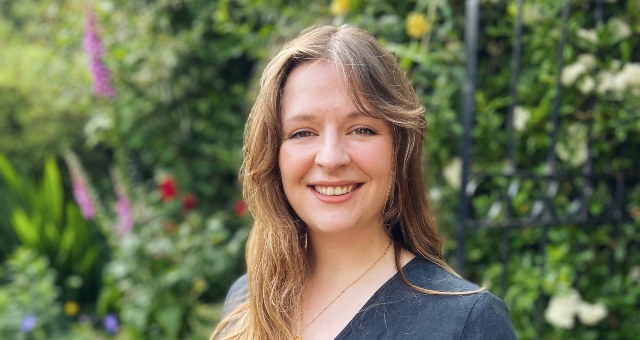
Research Spotlight: Improving mental health in young people
Dr Ola Demkowitz, as well as teaching on our BSc Educational Psychology, MEd Psychology of Education and PhD programmes, also undertakes research to understand mental health difficulties and learn which factors can promote good mental health.
Her recent focus has been on understanding the experience of teenagers during lockdown and the pandemic, and finding out how best they can be supported and support themselves through this period.
Here she discusses her journey into becoming a researcher and explains more about her recent research.
Becoming a researcher
I had a bit of an unusual route into academia. After I finished school I trained in early years and childcare, and began working in education settings with young children. I had never really planned to go to university, but then the UK government introduced a degree scheme for early years practitioners and I began studying for an undergraduate degree at my local college one day a week.
Through these studies and my work, I realised that I found the psychological processes in child development and wellbeing absolutely fascinating, so next I applied for a Master’s in Psychology of Education at The University of Manchester. I fell in love with research when I arrived here and ended up staying for a PhD and eventually, became a lecturer myself.
these studies and my work, I realised that I found the psychological processes in child development and wellbeing absolutely fascinating, so next I applied for a Master’s in Psychology of Education at The University of Manchester. I fell in love with research when I arrived here and ended up staying for a PhD and eventually, became a lecturer myself.
When I arrived in the Manchester Institute of Education it was the first time I’d really connected with people doing research. I hadn’t realised quite how dynamic the process is, and was surprised to hear about the research that my lecturers were doing. They talked about it with such passion, and there was real clarity in how the work taking place in the department (and the university) could translate into meaningful social change in the world. Really, it was this combined research focus and emphasis on social responsibility that made me want to work here.
Why I chose my area of research
I research adolescent mental health, with a particular emphasis on the mechanisms and processes that contribute to difficulties as well as the factors that can promote good mental health. Though much of my experience working in education was with young children, my focus on vulnerability and social and emotional processes has been a cornerstone both in my work as a practitioner and as a researcher. Additionally, I myself had some very difficult teenage and young adult years, and I feel honoured that I am now able to do work that I hope can make some other young people’s lives just a little bit easier.
My recent research with teenagers during lockdown
When the COVID-pandemic hit, we understood that this was a considerable concern for mental health. Our team was particularly concerned about the disruption this could be raising for older adolescents. Much of the initial evidence coming through about their mental health was statistical, and we wanted to go beyond this. So, we started The TELL Study (Teenagers’ Experiences of Life in Lockdown), where we explored the subjective experiences of the pandemic and lockdown in the UK among 16- to 19-year-olds.
In May 2020 over 100 teenagers shared their experiences, and we found that this has been a difficult time for teenagers, raising lots of difficult feelings and concerns, creating loss and uncertainty, disconnection, and frustration with government and media. We saw that teenagers were trying hard to take care of themselves and stay connected to others, and were actually experiencing some positives – a little less pressure in daily life, for instance.
The study has drawn interest from young people, parents and carers, practitioners, policymakers, and the media. We’ve used our findings to support those working with teenagers and young people, and to help young people themselves reflect on their experiences during the pandemic and see that they have not been alone with their feelings and frustrations.
Advice and resources from the study
If you’re interested in finding out more we have a range of briefings and guidance available from the study for different audiences.
• TELL project page
• Guidance for teenagers
• Toolkit for education professionals
• Presentation for policymakers






0 Comments